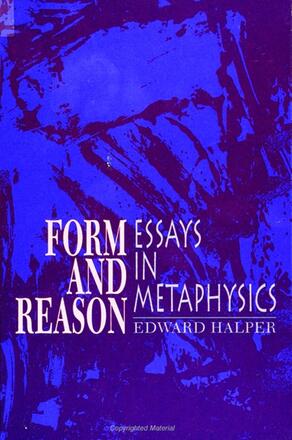
Form and Reason
Essays in Metaphysics
Alternative formats available from:
Description
This book uses the study of philosophical texts to raise and explore metaphysical issues. On one level, each essay addresses a scholarly issue in a classical text, often a text of Aristotle's. On a deeper level, the issues Halper considers are metaphysical. However, unlike thinkers who have brought linguistic analysis and contemporary metaphysical notions to these texts, Halper approaches them to find their formulations of issues and their strategies of pursuit. Halper is not concerned with the defense of metaphysical commitments but with finding and exploring paths of metaphysical inquiry.
The essays in this volume are exploratory and exegetical rather than decisive. Their contribution to metaphysics lies in the issues they raise, the methods they explore, and their conception of metaphysics as a discipline rooted in philosophical problems.
Edward Halper is Professor in the Department of Philosophy at the University of Georgia, Athens.
Reviews
"Edward Halper's book Form and Reason is an unusual work of striking promise. Although it takes the form of a series of discussions of central arguments in Plato, Aristotle, Hegel, and Nietzsche, Halper's work stands apart from typical scholarship in the field by calling into question not only the reigning interpretations of these seminal figures, but also the entire sweep of the prevailing orthodoxies in philosophy today, from analytic philosophy to pragmatism to hermeneutics. Halper writes with a deceptive modesty, advancing point by point in methodical analyses of ancient and modern debates in ethics and metaphysics, with a style spare and crystal clear, yet packed with original insights." — Richard Winfield, University of Georgia